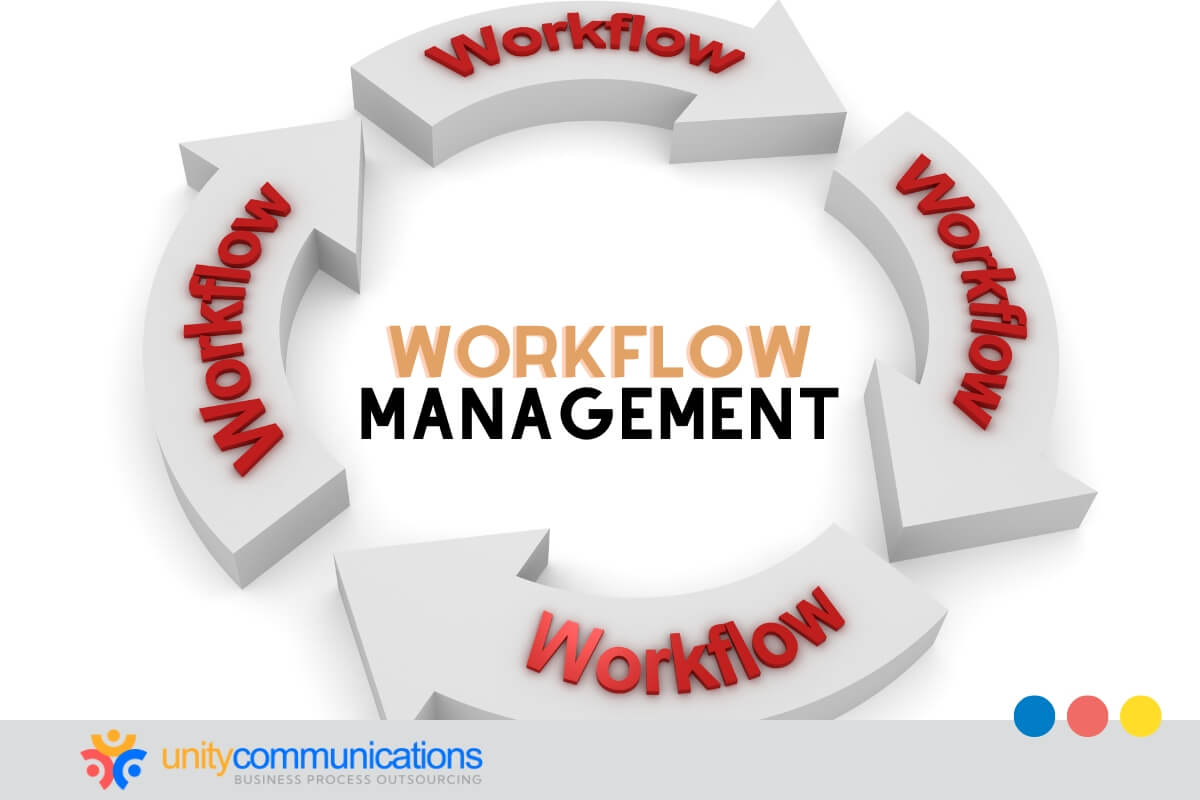IN THIS ARTICLE
Table of Contents
Outsourcing strategies enabled by artificial intelligence (AI) can give your business a competitive advantage by increasing efficiency, lowering costs, and sharpening decision-making. Smart AI solutions for outsourcers improve workflows, lower risks, and boost operational performance.
Many business process outsourcing (BPO) providers use AI for automation, predictive analytics, and sophisticated customer service. This article examines how sophisticated AI technologies influence outsourcing success.
The rise of AI in outsourcing: How technology is reshaping success

What is BPO, and how is AI transforming it into a more innovative, robust strategy? Outsourcing entails partnering with a third-party provider to handle specialized tasks, streamline operations, and increase efficiency through cost-effective and scalable support.
Integrating AI solutions in BPO drives automation and intelligence-led operations. AI–powered systems process vast amounts of information, provide valuable insights, and improve customer service through machine learning (ML) and natural language processing (NLP).
The global AI in the outsourcing market will reach $49.6 billion by 2033, soaring from $2.6 billion in 2023, according to a Market.us report. This surge highlights the growing reliance on smart AI solutions for outsourcers, increasing the demand for advanced technology-driven outsourcing strategies.
With AI enhancing outsourcing operations, its impact extends from standard customer interactions to strategic decision-making. Here’s how smart AI solutions for outsourcers can strengthen your outsourcing approach:
- AI applications in outsourcing revolutionize routine tasks. AI-driven chatbots provide 24/7 support, reducing response times and improving customer service interactions.
- ML and NLP enhance language-based processes, allowing your outsourcing partner to effectively handle multilingual communication.
- Predictive AI models help you assess outsourcing needs, optimize vendor selection, and refine service agreements to align with business goals.
- Data-driven forecasting improves long-term strategic outsourcing. AI enhances market trend analysis, operational planning, and consumer behavior insights, helping you make informed outsourcing decisions.
Key AI-powered tools transforming outsourced operations
Businesses outsourcing tasks to a reliable service provider benefit from AI-powered technologies that streamline workflows, improve decision-making, and drive scalability. By adopting them, your organization can harness the power of AI to maximize the value of its BPO partnership.
Explore the smart AI tools and solutions BPO companies use for outsourcers:
AI-driven automation for increased efficiency
Automation eliminates bottlenecks in manual business processes by streamlining repetitive tasks such as invoice processing, order management, data entry, and document verification. In the BPO industry, automation enhances productivity across outsourced functions by reducing human error and increasing processing speed.
Chatbots for smoother customer interactions
AI-powered chatbots offer 24/7 help while handling multiple customer inquiries simultaneously. These systems improve response times and escalate complex issues to human agents if necessary.
Precedence Research reports that the global chatbot market was valued at US$1.19 billion in 2024 and will hit $6.96 billion by 2034, highlighting its growing role in customer support.
AI-powered data security measures
Protecting sensitive information is always a priority. Akamai Technologies said ransomware attacks surged by 143% globally in Q1 2023, underscoring the escalating cybersecurity risks.
AI strengthens data security in outsourcing by detecting anomalies, preventing fraud, and supporting compliance with global regulations. Automated threat detection helps reduce risks and improve security across outsourced operations.
Smarter decision-making: AI in data analysis and predictive insights
Incorporating AI into data analysis and predictive insights benefits companies leveraging BPO services. With AI technologies, your internal team can make more informed decisions, optimize operations, and stay competitive.
Future Market Insights reports that the AI analytics market will surge from $29.11 billion in 2024 to $223.32 billion by 2034, emphasizing the growing reliance on AI for data-driven decision-making among companies outsourcing services.
Harnessing smart AI solutions for outsourcers unlocks key advantages, including:
Enhanced data analytics
AI systems quickly evaluate vast datasets, discovering patterns and trends that traditional methods might overlook. With integrated AI, your business can gain deeper insights, fine-tune strategies, and make more data-driven decisions. This capability allows you to:
- Gain in-depth insights into customer behaviors and preferences
- Optimize supply-chain management by predicting demand fluctuations
- Improve financial forecasting through precise data analysis
- Strengthen risk management by detecting anomalies and preventing potential fraud
Predictive insights for proactive decision-making
AI-powered predictive analytics help you anticipate trends and challenges, sharpening your business edge. These insights support proactive decision-making so you can adapt and strategize effectively. This foresight supports:
- Proactive resource allocation to meet expected demands
- Identification of emerging market opportunities and competitive positioning
- Mitigation of risks before they impact operations
- Optimization of workforce planning by forecasting staffing needs per demand trends
AI-driven automation: Streamlining outsourcing workflows

Automating repetitive processes accelerates operations and strengthens outsourcing strategies. AI-driven automation boosts accuracy, speed, and consistency while reducing manual work and enhancing scalability.
Key areas where smart AI solutions for outsourcers strengthen automation include:
Optimized process efficiency
Automated systems can handle high-volume tasks quicker than conventional methods, decreasing turnaround times for outsourced services. Firms that integrate AI into their outsourcing strategies benefit from the following:
- Faster invoice processing and order fulfillment
- Smooth document verification and compliance checks
- Minimized manual errors in data entry and record management
- Enhanced data extraction and validation for accurate reporting and informed business decisions
Intelligent workflow management
AI-based automation adapts to fluctuating workloads, maintaining high-quality output without unnecessary delays. Enterprises that leverage AI in workflow automation experience:
- Dynamic workload distribution according to changes in demand
- Simplified task delegation for third-party professionals
- Enhanced coordination between in-house and BPO teams
- Real-time performance analytics to identify inefficiencies and optimize outsourced workflow adjustments promptly
Scalability in BPO operations
Expanding operations necessitates flexible outsourcing solutions that respond to market requirements. AI-driven automation helps your operations businesses scale efficiently by:
- Supporting increased service volumes without proportionally raising labor costs
- Automating customer interactions through AI chatbots and self-service portals
- Enabling real-time performance tracking to fine-tune outsourcing plans
- Adjusting outsourcing strategies per shifting business demands and goals
Enhancing quality and mitigating risks with AI
Without oversight, outsourcing might bring challenges that impede quality and performance. AI-powered tools enhance quality assurance (QA) and risk management.
Here’s how smart AI solutions for outsourcers improve quality while proactively addressing potential issues for smoother, more secure operations.
AI-driven quality control in outsourcing
AI reduces human error and detects inconsistencies in outsourced tasks, helping you improve standards. Companies integrating AI into their outsourcing strategies benefit from:
- Automated error detection. AI-powered tools scan large datasets to flag inaccuracies in records, invoices, and reports before they delay operations.
- Consistent compliance monitoring. AI monitors changing government and industry regulations, helping your firm maintain compliance.
- Improved service consistency. ML models analyze past performance trends, enabling companies to refine outsourcing workflows for greater accuracy.
- Enhanced content oversight. AI filters user-generated content in outsourced moderation tasks, quickly identifying inappropriate or misleading material.
AI-powered risk mitigation in outsourced operations
Managing risks in outsourcing requires proactive measures against operational interruptions. AI helps businesses strengthen their outsourcing strategies by:
- Real-time fraud detection. AI-powered systems identify anomalies in financial transactions, reducing exposure to illegal activities.
- Predictive risk assessments. AI forecasts operational risks based on historical data, allowing you to anticipate and minimize disruptions.
- AI-driven dispute resolution. Automated analytics resolve customer disputes efficiently, enhancing service reliability and reputation.
AI in outsourced customer support: Balancing efficiency and experience
BPO-managed customer support provides prompt, accurate, and smooth interactions. Smart AI solutions for outsourcers drive efficiency while maintaining a personal touch, helping your organization manage demand, streamline operations, and refine customer engagement without sacrificing quality.
Here’s how customer interactions benefit from AI:
- AI-driven chatbots handle routine inquiries instantly, offering round-the-clock assistance without wait times. These intelligent applications can manage high volumes of inquiries while escalating complex cases to BPO customer service representatives (CSRs).
- Sentiment analysis tools evaluate customer emotions in real time, enabling AI-assisted responses that align with consumer needs.
- Speech recognition technology refines voice support by transcribing and analyzing conversations, improving resolution rates in outsourced call centers.
Beyond direct interactions, AI optimizes workflow efficiency for outsourced customer support via:
- Automated ticketing systems categorize and prioritize support requests, reducing response times and improving case management that minimizes backlog and accelerates issue handling.
- AI-powered knowledge bases offer third-party customer service agents instant access to relevant information, streamlining concern resolution and boosting CSR productivity.
- Predictive analytics identify common customer concerns, allowing proactive adjustments to service strategies and enhancing service personalization.
- AI-driven workforce management predicts call volumes and staffing needs, optimizing agent allocation for peak efficiency and maintaining consistent service levels.
- Real-time language translation allows BPO support teams to assist global customers seamlessly, breaking language barriers and improving communication.
Challenges in integrating AI into outsourcing operations

Incorporating smart AI solutions into outsourcing operations brings technical, financial, and workforce challenges that require strategic planning. Outsourcers must tackle them to maximize the strategy and drive results.
Here are common challenges:
Implementation complexity
AI adoption requires significant changes in workflows, infrastructure, and data management. You should address:
- System compatibility. Current platforms might not easily integrate with AI-powered tools and require technical modifications.
- Data readiness. AI models rely on high-quality data, and inconsistencies in datasets can result in unreliable outputs.
- Customization needs. AI-driven automation requires tailored configurations, which can extend implementation timelines.
Cost considerations
Upfront costs can be substantial. When outsourcing to a BPO vendor with AI solutions, you should evaluate the following expenses:
- Technology investments. AI-powered solutions, including ML models, require specialized software, hardware, assets, and development frameworks.
- Infrastructure upgrades. Cloud computing, data storage, and network enhancements add to the financial burden.
- Ongoing maintenance. AI systems require continuous updates and refinement, adding to long-term operating costs.
Workforce adaptation
AI shifts job roles, compelling you to rethink talent strategies when outsourcing to an offshore BPO provider. Key challenges include:
- Skill gaps. Employees will likely need reskilling in data analytics, automation oversight, and AI governance.
- Change resistance. Adapting to AI-driven workflows can be daunting for teams accustomed to traditional BPO models.
- Collaboration adjustments. Human-AI integration in outsourcing demands restructured roles and performance metrics.
Best practices for adopting AI-driven outsourcing strategies
A strategic approach aligns AI with business goals, helping you enhance efficiency, reduce risks, and refine workflows. Applying practical methods can help you effortlessly integrate AI solutions to sustain innovation and optimize performance.
Key considerations for a smooth transition include:
- Assessing outsourcing needs and AI compatibility. Identify business functions that benefit most from AI-driven automation, data analysis, or customer interactions. Evaluate existing workflows and determine where AI can enhance speed, accuracy, and scalability.
- Choosing the right AI-powered BPO partner. Seek BPO firms with proven AI expertise, robust technological infrastructure, and a solid background in implementing AI solutions. Assess their ability to integrate AI tools with your existing systems and adapt to your industry’s needs.
- Implementing phased AI adoption. Introduce AI in stages to minimize disruption. Start with low-risk functions, including automated data entry, chatbots, or predictive analytics. Then, gradually expand AI integration based on measurable performance improvements.
- Developing AI-focused training programs. AI usage shifts workforce dynamics, making upskilling vital. Equip internal teams with the knowledge to work alongside AI-driven tools while collaborating with BPO professionals trained in AI-enhanced workflows.
- Strengthening data governance and security. AI relies on vast datasets, requiring strict data management policies to maintain accuracy, privacy, and compliance. Work with your BPO partner, emphasizing cybersecurity, regulatory compliance, and ethical AI practices.
The bottom line
Smart AI solutions for outsourcers enhance efficiency, streamline workflows, and improve decision-making, helping you stay competitive and dynamic. From automation to predictive insights, AI-powered outsourcing optimizes performance while reducing risks.
Let’s connect and explore tailored AI strategies that refine operations, boost productivity, and support long-term business growth through innovative outsourcing solutions.





